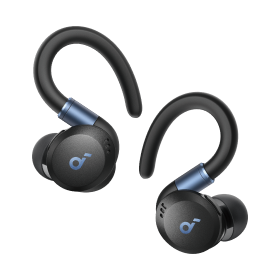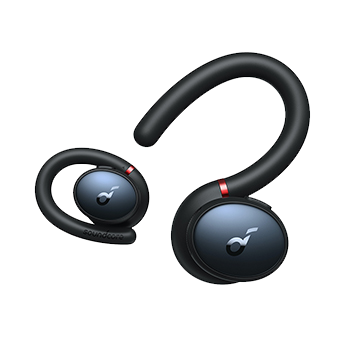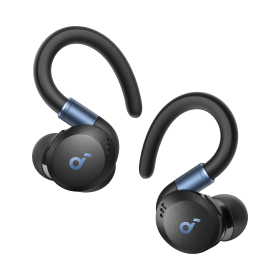What to Look for When Buying Bluetooth Speakers?
Bluetooth speakers are popular because they are portable, and their sound quality continuously improves as the new iteration of Bluetooth comes out. Bluetooth speakers offer an efficient way to listen to music, which allows users to connect wirelessly with any compatible device without any extra wiring or setup needed, ensuring that you can listen instantly without any stress or hassle involved.
Because speakers can be expensive, and their quality and performance vary significantly from brand to brand. Therefore, it is essential to be aware of what to look for when buying Bluetooth speakers. And it is necessary to explore what you need in terms of the specifications and then choose the one that offers the highest quality for the lowest cost. Check below for how to pick the best Bluetooth speaker according to your specific condition.
How to Pick the Best Bluetooth Speaker
Before purchasing a Bluetooth speaker, you need to think about where and what kind of event you will use the speaker. Some speakers are designed for home use, while others are intended for outside use, such as for listening to music while barbecuing or doing other outdoor activities.
Moreover, some speakers are made to be portable and can be taken with you when you travel. Speakers designed for home use will be different from speakers designed for travelling. Therefore, you need to determine where you intend to use the speakers before buying one.
Without further ado, let's find out what are the qualities of a good Bluetooth speaker should have.
Budget
Establishing a budget for a speaker purchase will be the first step before selecting the ideal Bluetooth speaker for your needs. It's true that the quality of the speakers you purchase is directly proportional to the amount of money you spend, but cheaper speakers don't necessarily mean they're of lower quality.

Battery Life
After you set a budget, battery life is the next thing you need to consider. Of course, you don't want to run out of battery while using your Bluetooth speaker, especially when you're outside and don't have access to a charger or a power outlet.

Normally smaller size speakers will have smaller batteries. Thus, their playtime is shorter. But you can expect the larger ones to have a battery life of up to 24 hours. Or 4-10 hours for the real average playtime.
However, if you're going to use your Bluetooth speaker mostly at home, you shouldn't have to blow the budget to get a longer battery life. There are many low-cost models that can offer five to six hours of playtime, making them ideal for long study sessions or parties.
The rule of thumb is to choose a Bluetooth speaker within your budget that has the highest battery capacity.
Audio Quality
It's easy to get distracted by price or design and overlook the specs or factors that will affect the sound quality when choosing a Bluetooth speaker. In fact, if you want a truly satisfying listening experience, then the sound quality should be the one that you pay attention to, from the frequency response, and sensitivity, to impedance.

The range of frequencies the human ear can pick up from a speaker is between 100 Hz and 20 kHz. In this case, 100 Hz is the lowest frequency, and 20 kHz is the highest. Having a very high frequency is unnecessary. Instead, we should focus on the low-frequency point, which gives us an idea of how deep the bass can go.
A premium speaker would often have a sensitivity higher than 90 dB, an impedance between six and eight Ohms, and a frequency response that extends from 20 Hz up to 20 kHz.
Size
Bluetooth speakers are available in various sizes. There are small conical or cylindrical models designed for portability and bigger models that typically offer better sound quality. In general, the bigger the speakers, the higher the audio quality, and the bigger ones often have a larger battery for longer use.
However, there are a few models that pack more weight into a small design, which can make the whole portability element a little trickier. This is why, before you click the "Buy" button, you should double-check the size and weight of your chosen Bluetooth speaker. This way, you won't end up buying a non-portable model or carrying around a weighty speaker whenever you want to use it for outdoor activities.
Water and Dust Resistance
Because Bluetooth speakers are portable and convenient, they are used on many occasions. Thus, they are more prone to damage from dust and water. Dust can clog your speakers, and water can quickly wreak havoc on the delicate circuitry inside electronics, leading to potential shorts and even permanent damage. This is why it is essential to have a speaker equipped with some resistance to the dangers that could potentially harm it.

Before making a purchase, you should read the product description carefully to ensure that the Bluetooth speaker is waterproof. Many manufacturers have implemented the "IP67" standard for waterproofing their speakers. This means the speaker can survive being drowned in water up to 1 meter deep for 30 minutes. Any product built to IP67 standards will be safe against dust and water.
All of the important features mentioned above can be found in soundcore's speaker products. soundcore Motion Boom Plus is one of the speakers that are suitable for use during outdoor activities. You can use soundcore Motion Boom or soundcore 3 if you want a long battery life because both of them last 24 hours. Moreover, all soundcore speakers already have IPX7 waterproof protection. So, you don't need to be afraid of water and dust.
FAQ
How many watts Bluetooth speaker is good?
Generally speaking, speakers with 40 watts or less are best for smaller areas like bedrooms or offices; for larger rooms like living rooms, 50-100 watts is usually enough. Anything over 100 watts may not be necessary unless you’re listening to music from a great distance. Keep in mind that increased wattage can also increase battery life, so make sure that’s taken into account when shopping around.
Is Bluetooth or wireless speaker better?
Both options provide a reliable connection from devices like mobile phones and laptops. Wireless speakers have an edge in terms of sound quality since they use direct-to-speaker signals as opposed to Bluetooth’s compressed audio data. On the other hand, Bluetooth speakers are usually more portable which makes them great for trips and outdoor events.
Conclusion
This blog wraps up everything you need to know about what to look for when buying wireless speakers. You must first establish the type of speaker that best meets your needs. After that, you need to consider other factors, such as your budget and the speaker's specifications.

















































